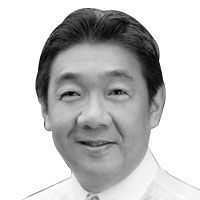Active vs. passive

At the start of 2019, we launched our newest fund – the Philequity MSCI Philippines Index Fund. We have received questions from investors about our new index fund. In this article, we explain the difference between actively managed funds and passive funds. We also enumerate the features of the MSCI index fund as compared to Philequity PSE Index Fund, Philequity Dividend Yield Fund and Philequity Fund.
What is the difference between actively managed funds and passive funds?
As the name connotes, actively managed funds such as Philequity Fund and Philequity Dividend Yield Fund are handled by professional fund managers. Fund performance is, therefore, driven by investment decisions made by professional managers and is not tied to an underlying index. In contrast, passive funds such as the PSE Index Fund and the MSCI index fund mirror the composition of a specific index while also tracking its performance.
What is the MSCI index fund?
The Philequity MSCI Philippines Index Fund was launched in partnership with MSCI. Unlike actively managed mutual funds, the fund tracks the composition and performance of the MSCI Philippines Index. Moreover, the MSCI index fund is not mandated to maintain a cash buffer and is allowed to deploy 100 percent of its investible funds to properly track the move of the underlying index.
What is MSCI?
MSCI Inc, formerly Morgan Stanley Capital International, is listed in the New York Stock Exchange. MSCI is the leading provider of quantitative and analytical tools which are used by investment professionals across all major asset classes. The firm has an extensive list of clients which includes most of the world’s biggest asset managers. MSCI has become a household name in investments as its asset indices are closely followed and monitored by almost everyone in the industry.
Is MSCI Philippines Index the same as the PSEi?
Both indices track the movement of the Philippine stock market and are used as performance benchmarks by both foreign and local fund managers. Both MSCI and the PSE use data on market capitalization, trading liquidity and free float to determine the index constituents and their respective weights. Nonetheless, there are still notable differences between the two and we list these below.
1. Number of constituents. The PSEi is composed of the top 30 Philippine stocks ranked based on size, liquidity, and public ownership. On the other hand, the MSCI Philippine Index is only composed of 23 out of the 30 stocks in the PSEi.
2. Top holdings. The biggest component of the PSEi is SM Investments Corp (SM) which has an index weight of 13.7 percent. Meanwhile, SM Prime Holdings, Inc (SMPH) and Ayala Land Inc (ALI) are the biggest constituents of the MSCI Philippines Index, with weights of 13.2 percent and 10.9 percent, respectively.
3. Foreign inclusion factor. Unlike the PSEi, MSCI uses foreign inclusion factor (FIF) as a major criteria for its indices. FIF is derived from a stock’s trading liquidity and foreign ownership level. Using FIF enables MSCI to select stocks which have adequate liquidity and foreign ownership headroom to accommodate the trading of large institutional clients and foreign portfolio managers.
Should we buy the MSCI index fund or the PSE index fund?
What makes the MSCI index fund different is the underlying index that it tracks. It is the first and only local fund which tracks the MSCI Philippines Index, the benchmark used and followed by almost all foreign fund managers. Large foreign institutions and global portfolio managers model their Philippine exposure after the MSCI Philippines Index. Foreign investors also use the MSCI index as the primary benchmark for their Philippine stock holdings.
Should we still buy individual stocks when we can invest in mutual funds?
For those who do not have the time and knack for trading, putting your money in mutual funds may be the more prudent and convenient option. However, for those who have the time and inclination, we recommend dabbling in individual stocks. One can learn a lot about investing from studying the prospects of individual companies, buying their stocks and monitoring their performance. Doing this can ultimately teach investors how to make sound and profitable investment decisions.
Which mutual fund should we buy?
Philequity currently offers six different funds and each has a specific purpose. The MSCI index fund and PSE Index Fund are mutual funds which track the composition and performance of an underlying index. In contrast, Philequity Fund and Philequity Dividend Yield Fund are both actively managed funds, with the latter geared more towards dividend-paying companies. Meanwhile, the Dollar Income Fund and Peso Bond Fund are mutual funds for those who would like to invest in fixed income.
Diversify, diversify, diversify
We have always emphasized the importance of having an asset allocation strategy. We advocate diversifying one’s investments into different asset classes such as real estate, cash, bonds or fixed income instruments, mutual funds, index trackers and stocks. Maintaining a diversified portfolio will enable investors to sleep well at night and be at peace with their investments even during times of extreme market volatility. We always tell our readers that one must have a certain portion of his investment portfolio in equities, whether in individual stocks, mutual funds or index funds. Among all the asset classes, equities still offer one of the best returns over the long term. How much one should put in stocks should depend on his asset allocation, risk tolerance and time horizon.
Philequity Management is the fund manager of the leading mutual funds in the Philippines. Visit www.philequity.net to learn more about Philequity’s managed funds or to view previous articles. For inquiries or to send feedback, please call (02) 250-8700 or email [email protected].
- Latest
- Trending































